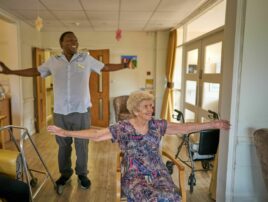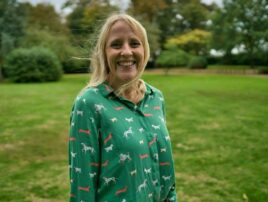
Tuesday 3rd August 2021
First study to show that using your brain in older age delays Alzheimer’s by up to five years
This is good news! We often assume that our brains are ‘set’ by the age of 70 and over, but a recent study by Dr Rob Wilson and his team at Rush University, Chicago shows that reading and processing information in old age may delay the onset of Alzheimer’s disease by as much as five years.
The study, published in Neurology magazine, involved 1,903 older adults from the Longitudinal Rush Memory and Ageing Project who were dementia-free at enrolment. They had yearly clinical evaluations and those who died during the study had a neuropathological examination.
The results showed that older adults with the highest level of ’late-life’ cognitive activity had a mean onset age of Alzheimer’s Dementia of 94, whereas those with the lowest ‘late-life’ cognitive activity developed dementia at age 89. Although it’s known that much resilience to dementia comes from education and experiences throughout life, this is the first study to show that it continues into old age. It is literally never too late!
The concept of ‘cognitive reserve’ has been around for some time. In his seminal work, Dementia Reconsidered, (McGraw-Hill Education, April 1997)) Professor Tom Kitwood observed that neuroscience suggests that there may be very great differences between human beings in the degree to which nerve architecture has developed as a result of learning and experience. ‘It follows that individuals may vary considerably in the extent to which they are able to withstand processes in the brain that destroy synapses, and hence in their resistance to dementia.’
An example is a successful barrister, the father of a friend, whose highly developed social and information processing skills delayed a diagnosis for several years. And author Sir Terry Pratchett’s Alzheimer’s was only confirmed by a scan, after his skill with words and concepts sailed him through the MMSE (Mini Mental State Examination.)
What is interesting in this latest study according to Dr Yaakov Stern, Professor of Neuropsychology at Columbia University, New York City, is the suggestion that late-life cognitive activity can contribute to this reserve. He said that while it did not affect the disease itself, it influenced the ability to cope with it. It links to the growing knowledge about the brain’s neuroplasticity, the ability to wire around damaged parts.
Also interesting is the focus on reading and processing information. Language seems to spark our neuronal circuits, especially when it’s being used to communicate directly with others. In Chapter 6 of Could it be Dementia: Losing your Mind doesn’t mean losing your Soul, (Lion Hudson, 2008) there’s mention of the strong effect of learning another language. The Western Mail in South Wales was quick to pounce on this story and ran it with the headline, ‘Learn Welsh and fight off the onset of dementia’. But it’s best to be realistic about your expectations. Ninety-six year old David Chapman found learning ancient Greek a bit hard going, so compromised with modern Italian.
Processing information and using language in conversation with others is central to our cognitive stimulation programme, ‘Brain and Soul Boosting’.





































